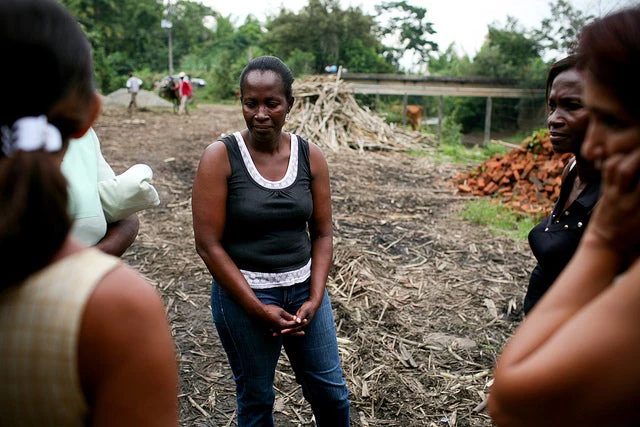
Proposed Sustainable Development Goal 16: “Promote peaceful and inclusive societies for sustainable development, provide access to justice for all and build effective, accountable and inclusive institutions at all levels.”
The UN General Assembly adopted this ambitious objective as one of the 17 new Sustainable Development Goals (“SDGs”) when they convened last week. This is a landmark recognition of the importance of justice services for poverty eradication and sustainable, inclusive development. But how will it work in practice?
In the midst of ensuing debates around this question, Colombia offers valuable lessons. In a country torn by almost seven decades of civil war and conflict, access to justice is critical for the advancement of peace and development. Yet inefficiencies of the courts, and their concentration in select urban centers, raise the cost of access. Compounded by lack of information, these barriers have kept justice services out of reach for many citizens, particularly for the poor and most vulnerable.
Colombia is advancing legal reforms, which the World Bank has helped support over the last decade, with exciting results. In six pilot cities (Barranquilla, Bogotá, Bucaramanga, Cartagena, Cali and Medellín), where roughly seventy percent of demand is concentrated, typical case processing times have been dramatically reduced, from an average of two years to a few months, and access to services has been expanded to 350,000 potential users.
Keys to success can be summed up in two words: efficiency and decentralization.
Enhanced efficiency has come with the transition from the predominantly “written” court system (relying on complex correspondence) to an oral system. Many time-consuming communications are now streamlined into a single court hearing. Backlogs have been reduced by nearly 1,086,000 cases, and productivity increased by an average of 389 cases per judge per year, with an average of US$92,000 saved per court per year (in the 234 courts covered, that’s over US$21.5 million per year saved!)
The second principle is about bringing justice home, through the creation of decentralized service units, information centers, and alternative dispute resolution mechanisms. As one user explained, it had taken her two hours and several costly bus rides to access the justice system. Now she can access services in less time, with the opportunity to appear before a judge, and to process routine cases without traveling far from home.
As several judges observed, interventions have helped transparently alleviate grievances and enhance citizen confidence in the justice sector, making people less inclined to take the law into their own hands. This points to the importance of improving justice access for preventing crime and alleviating social tensions in vulnerable segments of society.
Colombia’s lessons are valuable for other countries, particularly those emerging from conflict. Caught in the crossfire between cartels and the government army, over 220,000 civilians have lost their lives in Colombia’s conflict, and over 5.4 million have been internally displaced.
Recent Havana peace talks have brought us closer to the final accord, including for establishing a transitional justice system to bring truth to light, hold criminals in the conflict accountable, and provide reparations to victims. We are now working with Colombia to see how principles of efficiency and decentralization can be applied to provide justice and holistic reparations services to over 5.5 million legally entitled victims, in innovative ways. In addition to decentralized courts, we are now testing another exciting alternative, the mobile victims unit (MVU).
Victims face fear of retribution, time constraints to access services, and a lack of knowledge about their rights. These barriers disproportionately affect women, who are also more likely to require specialized services as survivors of sexual violence. MVUs, cadres of vehicles, extend the reach of multiple justice institutions to remote, unstable, and rural communities. They enable citizens to file and follow-up claims, and get training on rights and services. From 2012-2014, MVUs served over 30,000 people in 164 municipalities. Our ongoing evaluation will help the government of Colombia identify how MVUs can be improved to better respond to victims’ needs, offering replicable approaches for other countries pursuing the transition to peace.
As debates continue on how to implement and measure progress toward the goal 16 of the SDGs, the Colombia experience provides timely lessons, as we seek effective strategies to bring justice from the global agenda to the doorsteps of those who need it most.
Tweet this: Keys to success can be summed up in two words: efficiency and decentralization.
Tweet this: Access to justice is critical for the advancement of peace and development.
Tweet this: How can we bring justice from the global agenda to the doorsteps of those who need it most.



Join the Conversation